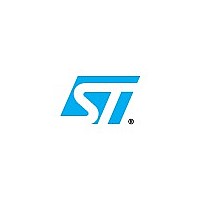ST92185B STMicroelectronics, ST92185B Datasheet - Page 149

ST92185B
Manufacturer Part Number
ST92185B
Description
16k/24k/32k Rom Hcmos Mcu With On-screen-display
Manufacturer
STMicroelectronics
Datasheet
1.ST92185B.pdf
(178 pages)
Available stocks
Company
Part Number
Manufacturer
Quantity
Price
Company:
Part Number:
ST92185BJ2B1/0BE
Manufacturer:
ST
Quantity:
122
Company:
Part Number:
ST92185BN4B1/PBI
Manufacturer:
ST
Quantity:
35
SERIAL PERIPHERAL INTERFACE (Cont’d)
7.6.8 IM-bus Interface
The IM-bus features a bidirectional data line and a
clock line; in addition, it requires an IDENT line to
distinguish an address byte from a data byte
ure
protocol sends the least significant bit first; this re-
quires a software routine which reverses the bit or-
der before sending, and after receiving, a data
byte.
IM-bus peripheral and an ST9 SPI. The SDO and
SDI pins are connected to the bidirectional data
pin of the peripheral device. The SDO alternate
function is configured as Open-Drain (external
2.5K
With this type of configuration, data is sent to the
peripheral by writing the data byte to the SPIDR
register. To receive data from the peripheral, the
user should write FFh to the SPIDR register, in or-
der to generate the shift clock pulses. As the SDO
Figure 94. ST9 and IM-bus Peripheral
n
Figure 95. IM bus Timing
CLOCK LINE
DATA LINE
PROTOCOL
10). Unlike the I
ST9 MCU
IM-BUS
Figure 9
IDENT
pull-up resistors are required).
PORTX
SDO
SCK
SDI
shows the connections between an
LSB
2
C-bus protocol, the IM-bus
1
2
2x
2.5 K
V
3
DD
CLOCK
DATA
IDENT
4
DEVICE
IM-BUS
SLAVE
VR001427
5
ST92185B - SERIAL PERIPHERAL INTERFACE (SPI)
6
(Fig-
MSB
line is set to the Open-Drain configuration, the in-
coming data bits that are set to “1” do not affect the
SDO/SDI line status (which defaults to a high level
due to the FFh value in the transmit register), while
incoming bits that are set to “0” pull the input line
low.
In software it is necessary to initialise the ST9 SPI
by setting both CPOL and CPHA to “1”. By using a
general purpose I/O as the IDENT line, and forcing
it to a logical “0” when writing to the SPIDR regis-
ter, an address is sent (or read). Then, by setting
this bit to “1” and writing to SPIDR, data is sent to
the peripheral. When all the address and data
pairs are sent, it is necessary to drive the IDENT
line low and high to create a short pulse. This will
generate the stop condition.
LSB
1
2
3
4
5
6
MSB
VR000172
149/178













